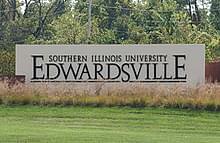Master of Laws [L.L.M] (Agricultural and Food Law)
Field of Study:
$49,046 /Yr
Outreach efforts, including the Indigenous Food & Agriculture Initiative and the Food Recovery Project, link our academic efforts to emerging issues of critical importance. Our unique curriculum offers a full range of specialized classes in agricultural and food law. Courses are offered on a regular semester basis or condensed to allow for more concentrated study. Special intensive classes taught by nationally recognized food and agricultural law experts offer the opportunity to earn credits with a 2-3 day focus on a specific topic. Our innovative distance program allows students to participate through live-stream video-conferences, interact in flipped classes, tune in to recorded lectures, and undertake guided online study. Course design assistance from the experienced distance learning professionals at the UA Global Campus assures excellence. The program also includes popular condensed courses.
LL.M. students attending classes on-campus in Fayetteville benefit from an expanded curriculum and special experiential opportunities available in Northwest Arkansas. These include participation in the Indigenous Food & Agriculture Initiative, the Food Recovery Project, and food and agriculture related externships. And, of course, they get to experience the charm of Fayetteville, Arkansas, first hand. A limited number of Graduate Assistantships are available to students on campus.
Introduction to Agricultural and Food LawAmerica is the world’s most productive producer of food and fiber. With more than 2 million farms and the livelihood of one out of every five Americans linked to agriculture, the agricultural sector is one of the country’s most important economic enterprises. Recognizing this unique and important status, agriculture has historically been treated differently than other industries, often with its own body of laws and exceptions. Most of these special rules are not covered in the typical law school curriculum.
Just as it is extraordinarily productive, American agriculture is also highly consumptive. The agricultural sector uses more of our nation’s natural resources, including land and water, than any other single industry. It is an industry that is increasingly challenged by complex environmental issues. Developing an agricultural system that balances production needs with environmental sustainability, particularly in the face of global warming is a serious challenge for the future.
Consumer interest in food and our overall food system has led to the development of food law as a central component of agricultural law studies. Increased interest in food safety, food labeling, and animal welfare — indeed, an interest in where and how our food is produced — has raised fundamental issues for legal study.
In an increasingly globalized world, issues of food and agriculture often involve international trade and require a greater understanding of international perspectives and priorities. Whether the task is debating international food safety standards, assessing our farm programs for compliance with World Trade Organization requirements, or addressing world hunger and the right to food, the study of agricultural and food law extends far beyond our borders.
Agricultural & food law is a study of a network of laws and policies that apply to our food system. There is nothing more basic, yet there are few things more complex.
Agricultural and Food Law at the University of ArkansasLocated where the agriculture of the West, Midwest, and South merge, Arkansas provides an ideal location for the study of agricultural and food law. Agriculture is the state’s leading industry: Arkansas-based Riceland Foods is the world’s largest miller and marketer of rice; Wal-Mart is the world’s largest grocery retailer; and Tyson Foods leads the world in meat sales. The University of Arkansas is also a leader in agricultural sciences through the work of the Dale Bumpers College of Agricultural, Food and Life Sciences. Northwest Arkansas has a vibrant local foods community, with an extensive network of farmers’ markets and local food venues, community organizations working to improve local food access, and strong support for sustainable agricultural production.
Recognizing the importance of agriculture to Arkansas and the surrounding region, the University of Arkansas School of Law founded the LL.M. Program in Agricultural Law in 1980 as the first and only specialized degree program for attorneys interested in the study of agricultural law. Understanding the inherent connection between agriculture and our food system, the program expanded to include food law in 2009. Graduates of the agricultural law program are uniquely prepared to shape agricultural and food law and policy in the 21st century.
Important Dates
| Event | Application Date |
|---|---|
| Application Deadline For Summer Intake | |
| Application Deadline For Fall 2024 Intake | |
| Application Deadline For Spring 2025 Intake | |
Tuition Fees
| Year | 1st Year Fees |
|---|---|
| Tuition Fees | $49046 |
Other Expenses
| Head | Avg Cost Per Year |
|---|---|
| Room and Board | $11942 |
| Health Insurance | $2103 |
| Books and supply | $900 |
| Total Cost | $14945 |

1546425900.png?h=48&w=101&mode=stretch)
Similar Programs
| Program | Important Date | Total Fees | Median Exams Score | Action |
|---|---|---|---|---|
| USD 38,588 /Yr |
| |||
| USD 15,116 /Yr |
| |||
| USD 25,290 /Yr |
| |||
| USD 21,360 /Yr |
| |||
 L.L.M, Washington University L.L.M, Washington University2 years | USD 54,014 /Yr |
|
Course Guides
1 Year Courses in USA: Fees, Deadlines & Eligibility
LLM in USA: Fees 2024, Top Colleges, Placements & Salaries
Masters (MS) in USA: Colleges, Courses, Deadlines, Eligibility & Fees
MS Courses in USA: Top Universities, Admissions and Tuition Fees
Scholarship Grants & Financial Aids
| Name | Scholarship Per Student | Level of Study | Type | |
|---|---|---|---|---|
| Innovation in Education Scholarship - La Tutors 123 | Scholarship per student$ 500/Yr$500 | Level Of StudyBachelor | TypeMerit-Based | |
| (ISC)² Women’s Cybersecurity Scholarships | Scholarship per studentVariable Amount | Level Of StudyBachelor | TypeMerit-Based | |
| Bharat Petroleum Scholarship | Scholarship per studentVariable Amount | Level Of StudyMaster | TypeMerit-Based | |
| ASID Foundation Legacy Scholarships | Scholarship per student$ 4,000/Yr$4,000 | Level Of StudyBachelor | TypeMerit-Based | |
| University of Alabama Scholarships | Scholarship per student$ 6,000/Yr$6,000 | Level Of StudyBachelor | TypeCollege-Specific | |
| QS Connect Master’s Scholarship | Scholarship per student$ 5,000/Yr$5,000 | Level Of StudyMaster | TypeMerit-Based |
Similar Colleges


Southern Illinois University


University at Albany


Northern State University


Abilene Christian University
.jpeg?h=143&mode=stretch)

Ohio Northern University


University of South Carolina


University of Akron


State University of New York Polytechnic Institute



















.jpeg?h=40&w=40&mode=stretch)











Comments